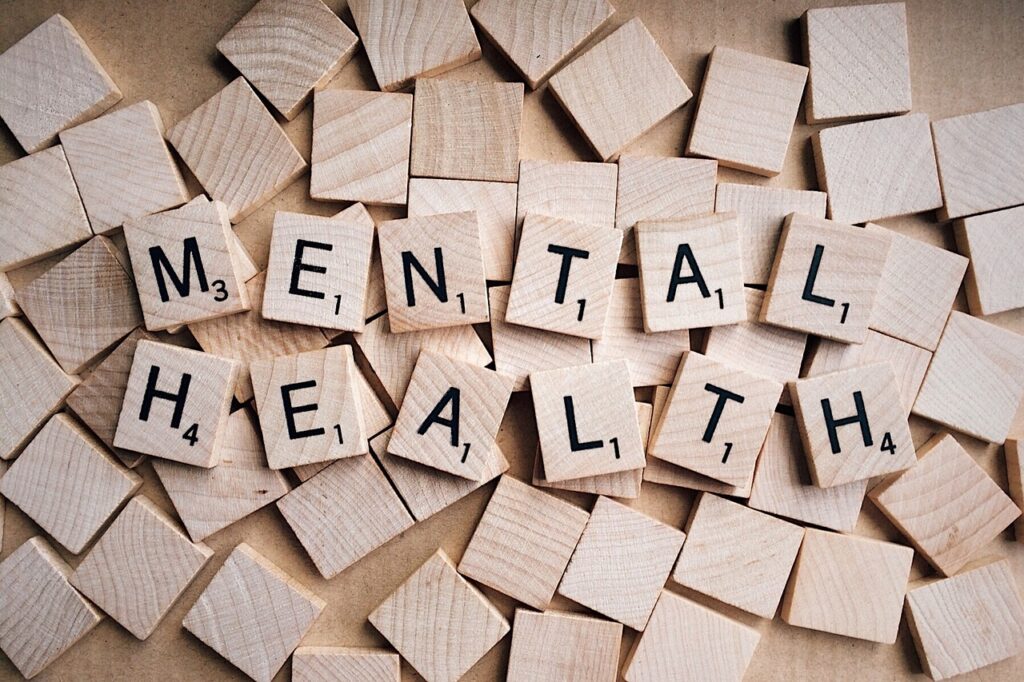Supporting Mental Health for Black and Minority Ethnic Communities in Europe
Our Project to Support Mental Health in BME Communities
Our Supporting Mental Health for Black and Minority Ethnic Communities in Europe initiative aims to address these unique mental health challenges and provide holistic, accessible support to BME communities. This project is grounded in the principles of inclusivity, cultural sensitivity, and empowerment. By providing targeted mental health resources, fostering community support, and advocating for systemic change, we hope to reduce the barriers to mental health care faced by BME communities in Europe.
The project will focus on four main areas of intervention:
- Culturally Sensitive Mental Health Services
- Community Engagement and Education Programs
- Training for Mental Health Professionals
- Advocacy and Policy Reform
Project Implementation
- Culturally Sensitive Mental Health ServicesCulturally sensitive mental health services are essential to meet the diverse needs of BME communities. Our approach will involve creating a supportive environment that respects cultural beliefs and values, ensuring that BME individuals feel understood and accepted when seeking mental health care.
- Establishing Cultural Competence in Care: We will work with mental health facilities to establish culturally competent care standards, where therapists and counselors are trained to recognize and respect the cultural values of BME patients. Culturally sensitive assessments will be integrated into treatment plans to ensure that mental health interventions are aligned with the individual’s background and beliefs.
- Diverse Representation in Mental Health Staff: To build trust, we aim to increase diversity among mental health providers. This will involve hiring more BME therapists and counselors or partnering with mental health professionals from BME backgrounds. Patients often feel more comfortable sharing their experiences with professionals who understand their cultural context.
- Offering Language-Specific Services: Recognizing language barriers, we will work to provide mental health services in multiple languages. This will involve hiring bilingual or multilingual mental health professionals, offering translation services, and producing mental health resources in various languages spoken by BME communities in Europe.
- Creating Safe Spaces for Counseling and Therapy: Safe spaces for mental health support will be established, including both physical and virtual spaces, where BME individuals can receive counseling and therapy without judgment or discrimination. These spaces will be designed to provide a welcoming environment that encourages open dialogue.
- Community Engagement and Education ProgramsEducation and community engagement are powerful tools in breaking down mental health stigma within BME communities. By raising awareness, we can foster a better understanding of mental health, reduce stigma, and encourage individuals to seek help.
- Mental Health Awareness Campaigns: We will run awareness campaigns tailored to BME communities, addressing common mental health issues and breaking down stigmatizing beliefs. These campaigns will utilize culturally relevant messages and imagery to resonate with different BME groups and will be shared on social media, radio, and community events.
- Workshops on Mental Health and Well-being: Community workshops will cover topics such as stress management, emotional well-being, and the importance of seeking help. These workshops will be conducted in local community centers, religious institutions, and other gathering places to make them easily accessible to BME individuals.
- Engaging Community Leaders: Community leaders often play a key role in shaping attitudes. We will engage trusted leaders from BME communities, including religious leaders, social activists, and influencers, to advocate for mental health awareness and help combat stigma within their communities.
- Peer Support Programs: Establishing peer support networks can provide individuals with a sense of belonging and a safe space to discuss mental health issues. These programs will connect individuals with shared cultural backgrounds, allowing them to support each other through their mental health journeys.
- Training for Mental Health ProfessionalsTraining mental health professionals to better understand the unique challenges faced by BME communities is crucial to delivering effective care. By providing cultural sensitivity training, we aim to equip mental health providers with the skills to recognize and address the specific needs of BME individuals.
- Cultural Sensitivity and Bias Training: We will develop training programs to educate mental health professionals on cultural sensitivity and unconscious biases. This training will help them understand the cultural context of mental health issues in BME communities, fostering empathy and reducing misdiagnosis.
- Mental Health Workshops for BME-specific Issues: Mental health providers will be trained to understand BME-specific issues, including racial trauma, identity struggles, and the impact of discrimination on mental health. This knowledge will enable professionals to provide more targeted and relevant support.
- Support for Trauma and Crisis Management: Training will include approaches for managing trauma and crisis situations, particularly for individuals who have experienced racial discrimination or other forms of trauma. Trauma-informed care will be a central component of our mental health services for BME individuals.
- Advocacy and Policy ReformLasting change requires systemic reform to ensure equal access to mental health care for BME communities. Our advocacy efforts will focus on addressing systemic barriers, promoting equity in mental health services, and raising awareness of the unique challenges faced by BME communities.
- Promoting Equitable Access to Mental Health Services: We will advocate for policies that increase funding and resources for mental health services targeted at BME communities. This includes funding for outreach programs, language services, and culturally sensitive training for mental health providers.
- Campaigning for Anti-Discrimination Policies in Healthcare: Anti-discrimination policies are essential to ensure that BME individuals feel safe and respected when seeking mental health care. Our advocacy will focus on creating and enforcing policies that protect BME patients from discrimination within healthcare settings.
- Collaborating with Government Agencies: We will work with government health agencies, NGOs, and other organizations to promote awareness of mental health issues in BME communities and the importance of equitable healthcare. These collaborations will help bring attention to mental health disparities and the need for systemic change.
Conclusion
Supporting the mental health of BME communities in Europe is essential to fostering a more inclusive and equitable society. This project aims to address the unique mental health challenges faced by BME individuals, reduce stigma, and provide culturally sensitive support that empowers them to seek help and thrive. By establishing accessible mental health services, engaging with communities, training providers, and advocating for systemic change, we can make a significant impact on the mental health and well-being of BME communities in Europe.
Your support is crucial to this mission. Together, we can break down the barriers to mental health care and ensure that BME individuals receive the compassionate, culturally relevant care they deserve. Please consider donating to support this cause and help us build a healthier future for all.
Our Project to Support Mental Health in BME Communities
Our Supporting Mental Health for Black and Minority Ethnic Communities in Europe initiative aims to address these unique mental health challenges and provide holistic, accessible support to BME communities. This project is grounded in the principles of inclusivity, cultural sensitivity, and empowerment. By providing targeted mental health resources, fostering community support, and advocating for systemic change, we hope to reduce the barriers to mental health care faced by BME communities in Europe.
The project will focus on four main areas of intervention:
- Culturally Sensitive Mental Health Services
- Community Engagement and Education Programs
- Training for Mental Health Professionals
- Advocacy and Policy Reform
Project Implementation
- Culturally Sensitive Mental Health ServicesCulturally sensitive mental health services are essential to meet the diverse needs of BME communities. Our approach will involve creating a supportive environment that respects cultural beliefs and values, ensuring that BME individuals feel understood and accepted when seeking mental health care.
- Establishing Cultural Competence in Care: We will work with mental health facilities to establish culturally competent care standards, where therapists and counselors are trained to recognize and respect the cultural values of BME patients. Culturally sensitive assessments will be integrated into treatment plans to ensure that mental health interventions are aligned with the individual’s background and beliefs.
- Diverse Representation in Mental Health Staff: To build trust, we aim to increase diversity among mental health providers. This will involve hiring more BME therapists and counselors or partnering with mental health professionals from BME backgrounds. Patients often feel more comfortable sharing their experiences with professionals who understand their cultural context.
- Offering Language-Specific Services: Recognizing language barriers, we will work to provide mental health services in multiple languages. This will involve hiring bilingual or multilingual mental health professionals, offering translation services, and producing mental health resources in various languages spoken by BME communities in Europe.
- Creating Safe Spaces for Counseling and Therapy: Safe spaces for mental health support will be established, including both physical and virtual spaces, where BME individuals can receive counseling and therapy without judgment or discrimination. These spaces will be designed to provide a welcoming environment that encourages open dialogue.
- Community Engagement and Education ProgramsEducation and community engagement are powerful tools in breaking down mental health stigma within BME communities. By raising awareness, we can foster a better understanding of mental health, reduce stigma, and encourage individuals to seek help.
- Mental Health Awareness Campaigns: We will run awareness campaigns tailored to BME communities, addressing common mental health issues and breaking down stigmatizing beliefs. These campaigns will utilize culturally relevant messages and imagery to resonate with different BME groups and will be shared on social media, radio, and community events.
- Workshops on Mental Health and Well-being: Community workshops will cover topics such as stress management, emotional well-being, and the importance of seeking help. These workshops will be conducted in local community centers, religious institutions, and other gathering places to make them easily accessible to BME individuals.
- Engaging Community Leaders: Community leaders often play a key role in shaping attitudes. We will engage trusted leaders from BME communities, including religious leaders, social activists, and influencers, to advocate for mental health awareness and help combat stigma within their communities.
- Peer Support Programs: Establishing peer support networks can provide individuals with a sense of belonging and a safe space to discuss mental health issues. These programs will connect individuals with shared cultural backgrounds, allowing them to support each other through their mental health journeys.
- Training for Mental Health ProfessionalsTraining mental health professionals to better understand the unique challenges faced by BME communities is crucial to delivering effective care. By providing cultural sensitivity training, we aim to equip mental health providers with the skills to recognize and address the specific needs of BME individuals.
- Cultural Sensitivity and Bias Training: We will develop training programs to educate mental health professionals on cultural sensitivity and unconscious biases. This training will help them understand the cultural context of mental health issues in BME communities, fostering empathy and reducing misdiagnosis.
- Mental Health Workshops for BME-specific Issues: Mental health providers will be trained to understand BME-specific issues, including racial trauma, identity struggles, and the impact of discrimination on mental health. This knowledge will enable professionals to provide more targeted and relevant support.
- Support for Trauma and Crisis Management: Training will include approaches for managing trauma and crisis situations, particularly for individuals who have experienced racial discrimination or other forms of trauma. Trauma-informed care will be a central component of our mental health services for BME individuals.
- Advocacy and Policy ReformLasting change requires systemic reform to ensure equal access to mental health care for BME communities. Our advocacy efforts will focus on addressing systemic barriers, promoting equity in mental health services, and raising awareness of the unique challenges faced by BME communities.
- Promoting Equitable Access to Mental Health Services: We will advocate for policies that increase funding and resources for mental health services targeted at BME communities. This includes funding for outreach programs, language services, and culturally sensitive training for mental health providers.
- Campaigning for Anti-Discrimination Policies in Healthcare: Anti-discrimination policies are essential to ensure that BME individuals feel safe and respected when seeking mental health care. Our advocacy will focus on creating and enforcing policies that protect BME patients from discrimination within healthcare settings.
- Collaborating with Government Agencies: We will work with government health agencies, NGOs, and other organizations to promote awareness of mental health issues in BME communities and the importance of equitable healthcare. These collaborations will help bring attention to mental health disparities and the need for systemic change.
Conclusion
Supporting the mental health of BME communities in Europe is essential to fostering a more inclusive and equitable society. This project aims to address the unique mental health challenges faced by BME individuals, reduce stigma, and provide culturally sensitive support that empowers them to seek help and thrive. By establishing accessible mental health services, engaging with communities, training providers, and advocating for systemic change, we can make a significant impact on the mental health and well-being of BME communities in Europe.
Your support is crucial to this mission. Together, we can break down the barriers to mental health care and ensure that BME individuals receive the compassionate, culturally relevant care they deserve. Please consider donating to support this cause and help us build a healthier future for all.




